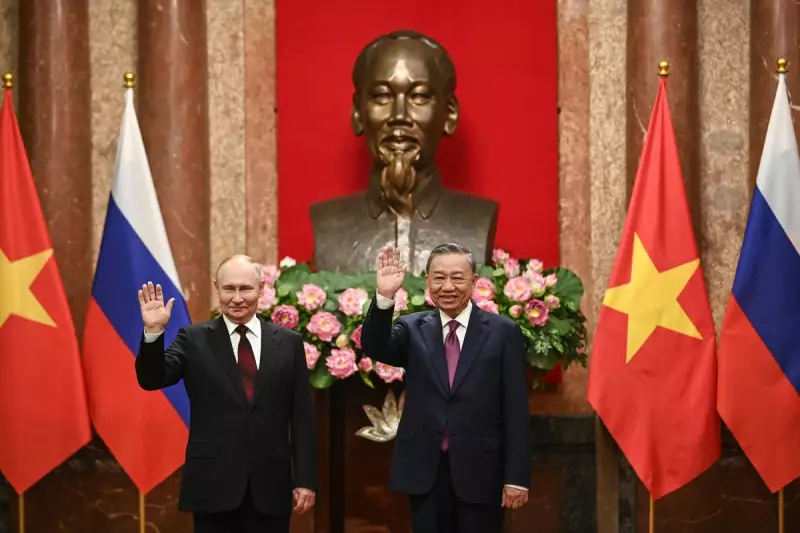
In a significant move that underscores the complex chessboard of global diplomacy, Vietnam is actively working to fortify its longstanding relationship with Russia. This development comes hot on the heels of a contentious visit by Russian President Vladimir Putin to Hanoi, a trip that sent ripples across the international community.
The strengthening of ties between Hanoi and Moscow presents a delicate balancing act for the Southeast Asian nation, which also maintains crucial trade and strategic partnerships with Western powers, including the United States and the European Union. This manoeuvring highlights Vietnam's nuanced foreign policy of maintaining 'bamboo diplomacy' – bending with the wind but not breaking.
Navigating a Web of Alliances
The recent visit by President Putin, which resulted in a series of agreements, has placed Vietnam in a precarious position. The nation is now walking a tightrope, seeking to honour a historic alliance with Russia while avoiding the severe repercussions of Western sanctions imposed due to the ongoing conflict in Ukraine.
Analysts suggest that Vietnam's motivation is deeply rooted in self-preservation and regional security. The country remains heavily dependent on Russian military hardware for its defence capabilities, a reliance built over decades. Furthermore, cooperation extends into the energy sector, with joint oil and gas exploration projects in the South China Sea being a point of particular interest – and contention with other regional powers.
International Reaction and Scrutiny
The warming of relations has not gone unnoticed. The United States and its allies have expressed concern, viewing any actions that could be construed as bolstering Russia's economy or legitimising its leadership as counterproductive to efforts aimed at ending the Ukraine war.
Despite this pressure, Vietnam has defended its position, asserting its right to pursue an independent foreign policy that serves its national interests. Officials in Hanoi emphasise their commitment to peace and stability and their adherence to international law, hoping to placate Western anxieties.
The outcome of this diplomatic tightrope walk will be closely watched, as it serves as a bellwether for how smaller nations navigate the increasingly polarised and volatile landscape of global politics.





